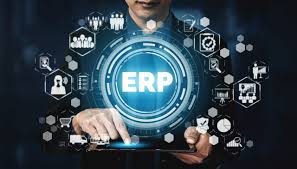What is NLP in Healthcare and How to use in medical practice?
What is “Natural Language Processing” (NLP)?
The term “natural language processing,” or NLP for short, refers to a subfield of “artificial intelligence” (AI) that enables computers to read and comprehend human language in both its written and spoken forms. Scientists are able to develop systems that are capable of processing, analyzing, and deriving meaning from both written and spoken language by leveraging the combined strength of the fields of computer science and linguistics.
These systems, which are driven by machine learning and powerful deep learning algorithms, have limitless applications in the real world, including voice-powered GPS technology, automated text translation, and customer care chatbots.
If you can believe it, natural language processing (NLP) has been around since the early 1950s, NLP has seen significant development. NLP models are becoming more accurate as a result of the increased processing power available today, the advancements that have been made in data science, and the availability of vast volumes of data. In point of fact, the use of NLP technology is so widespread in today’s culture that we often fail to recognize its significance. However, if one goes beyond the realm of digital assistants and email filters, one will find that it is a magnificent science, and one that is also surprisingly difficult.
The field of healthcare is always experimenting with new methods to keep up with the fast pace of technological advancement. One of them is known as Natural Language Processing, or NLP for short. Through case study analysis, we were able to identify three fundamental problems that NLP can address in the healthcare sector.
- Enhancing Health Records
A major issue in the healthcare system is the subpar electronic health record. There are stumbling barriers to hospital interoperability in the areas of data integration, receipt, dissemination, and finance. More than half of healthcare executives see the difficulty in handling this data as a barrier to enhancing interoperability. Natural language processing developer India can analyse and evaluate large amounts of data in a matter of seconds or minutes. Massive amounts of textual data are evaluated, including documents, internet reviews, emails, and more.
- Assistance with clinical decision-making
One of the first, most fundamental steps in streamlining clinical decision-making is the use of natural language processing to healthcare. Any licensed medical professional will tell you that improper diagnosis and treatment are hampered by a lack of knowledge. Sixty-six percent of unstructured data is now unavailable for use in making choices about patient care. There is hope for a turnaround because of the development of predictive virtual technology.
- Promotes health-related knowledge
A potential improvement in patients’ health literacy is one of the less obvious advantages of NLP in healthcare. While natural language processing (NLP) methods can’t replace medical professionals, they may assist patients in keeping track of their medical history and interacting with chatbots for diagnostics.
- Finding medical emergency
The use of natural language processing and artificial intelligence has the potential to dramatically alter the healthcare industry. In the case of healthcare, for instance, technology may examine a patient’s history and make educated guesses about what medical issues they may be experiencing. With this method, we may either avoid being sick in the first place, or catch any illnesses at an early stage for effective treatment.
- Transforming data
Machine-coherent arrangements in their unaltered form have little practical use. However, natural language processing (NLP) in healthcare may assist in translating this data into a universal language. Thus, the data is put to productive and instructive use in many contexts.
- Interpreting Verbal Content
Speech recognition is one area where natural language processing (NLP) has grown as a use case, enabling doctors to transcribe notes for efficient EHR data input. Because of advances in voice recognition technology, doctors no longer need to sit at a desk and dictate patient notes. Instead, they can stay at the point of treatment and let the computer do the job while they proofread it for mistakes.
Despite the fact that the market for voice recognition technology is almost saturated, a small but influential group of firms is shaking things up by applying deep learning algorithms to mining applications, therefore opening up previously unimagined possibilities.
Bottom Line
Although still in its earl age NLP is rapidly becoming an indispensable tool in many fields throughout the world. One of NLP’s many great qualities is its instantaneous language recognition and emotion prediction capabilities. It is revolutionizing business as a result of the huge boost in consumer satisfaction it has brought to several companies.
Because of the consistent and continuous development of AI and ML, the future of natural language processing developer India looks bright and these developers are in huge demand. This technology has only just begun to develop, and what we are seeing is the very first step of it. In the not-too-distant future, Natural Language Processing will bridge the communication gap between machines and humans.



Leave a Reply
You must be logged in to post a comment.